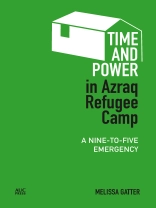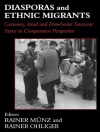WINNER OF THE 2023 ALIXA NAFF PRIZE IN MIGRATION STUDIES
The politics and governance of Jordan’s Azraq camp for Syrian refugees
Azraq refugee camp, built in 2014 and host to forty thousand refugees, is one of two official humanitarian refugee camps for Syrian refugees in Jordan. Time and Power in Azraq Refugee Camp investigates the relationship between time and power in Azraq, asking how a politics of time shapes, limits, or enables everyday life for the displaced and for aid workers.
Based on ethnographic fieldwork, carried out during 2017–2018, the book challenges the perceptions of Azraq as the ‘ideal’ refugee camp. Melissa Gatter argues that the camp operates as a ‘nine-to-five emergency’ where mundane bureaucratic procedures serve to sustain a power system in which refugees are socialized to endure a cynical wait—both for everyday services and for their return—without expectations for a better outcome.
Time and Power in Azraq Refugee Camp also explores how refugees navigate this system, both in the day-to-day and over years, by evaluating various layers of waiting as they affect refugee perceptions of time in the camp—not only in the present, but the past, near future, and far future.
Far from an ‘ideal’ camp, Azraq and its politics of time constitute a cruel reality in which a power system meant to aid refugees is one that suppresses, foreclosing futures that it is supposed to preserve.
Tabella dei contenuti
Preface
Introduction: Why Time?
1. Azraq’s Emergency
2. A Humanitarian Bureaucracy
3. Preserving Order
4. Waiting for What?
5. Ordinary Futures
Conclusion: Azraq in the Past Tense
Bibliography
Index
Circa l’autore
Melissa Gatter is a lecturer in International Development at the University of Sussex, researching forced migration, aid, and time in the Middle East, and she received her Ph D from the University of Cambridge in 2020. She has also worked for leading aid agencies in Jordan, including Save the Children. She lives in the UK.












